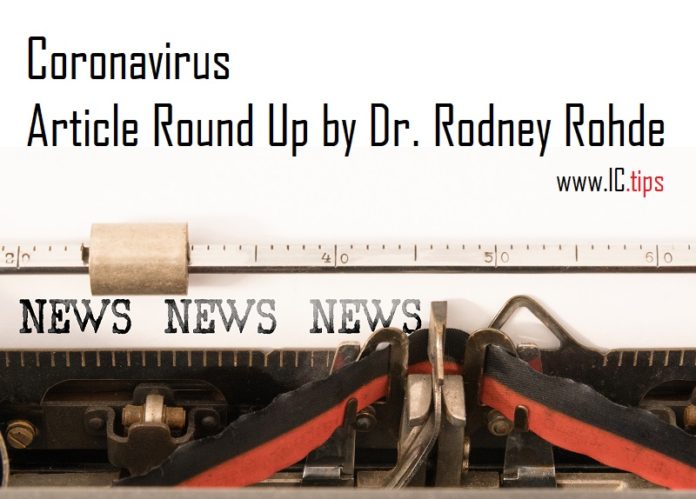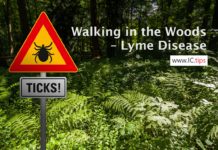Medical laboratory and public health professionals play an integral role in the healthcare system by not only providing diagnostic services that directly impact therapeutic management of patients, but also by offering their expertise in interpretation of the increasing number and types of medical laboratory inventory of tests. Likewise, these professionals integrate their laboratory background with understanding the epidemiology and other facets of microbial threats – novel and emerging. The latest information surrounding the current and ongoing nCoV-2019 coronavirus outbreak affecting clinical microbiology, as well as the professions of medical / clinical laboratory and public health are constantly evolving. Dr. Rohde discusses these in his recently published two-invited American Society for Microbiology articles and one invited Elsevier Connect article by Dr. Rohde.
These articles on the nCoV-2019 coronavirus outbreak aim to inform laboratory professionals, business thought leaders, public health professionals, medical/health educators, healthcare professionals, government policy planners, and the clinical diagnostics field at large about the past, current and future paradigms for microbial outbreak detection, management and national and state strategies for reduction of these deadly infections. Each article focuses on different topics related to the outbreak, but includes an explanation of the public health and clinical rationale that has led to the current practices in the field. These reports are presented with the goal of highlighting timely and pertinent affairs in the fast-paced and evolving field of global, and local, microbial threats and outbreaks and where they intersect with all of us. Following is a summary of the three invited articles.
Article 1:
2019 Novel Coronavirus (2019-nCoV) Update: Uncoating the Virus
2019 Novel Coronavirus (2019-nCoV) Update: Uncoating the Virus
This article summarizes current CDC recommendations for the 2019-nCoV outbreak in the United States. Within the context of the report, Dr. Rohde discusses coronaviruses categorization, coronavirus genetics, lessons from past coronavirus outbreaks, and general concerns about the outbreak. It focuses on the emerging, rapidly changing situation, and resources that CDC (and other reputable sources) will provide regarding updated information as it becomes available, in addition to updated guidance.
Article 2:
Novel Coronavirus Lab Protocols and Responses: Next Steps
Novel Coronavirus Lab Protocols and Responses: Next Steps
This article discusses the sensational nature of an infectious disease outbreak combined with the ease of spreading information leads to rumors and misinformation, and this has certainly been true with the 2019 novel coronavirus (2019-nCoV). In this article, Dr. Rohde discusses coronavirus laboratory guidelines, a plan for global public health response, and additional lessons from past outbreaks.
An overview of the specific CDC guidelines for public health laboratories and medical laboratories, specifically in regards to the approved real time Reverse Transcription-Polymerase Chain Reaction (rRT-PCR) test that can diagnose 2019-nCoV which has now been approved for other CDC approved laboratories in the U.S. is presented. Lastly, each of these ASM articles had embedded and other listed resources at the ASM Coronavirus Resource Page.
Article 3:
6 of the Most Common Coronavirus Questions the Media is Asking
6 of the Most Common Coronavirus Questions the Media is Asking
As an infectious disease and clinical microbiology expert, Prof. Rodney E. Rohde of the Texas State University College of Health Professions and Chair of the CLS Program receives daily calls from the media, government and university officials, public health and professional organizations and the public asking him about the emerging novel coronavirus outbreak. Here in this invited Elsevier Connect article, he shares some of the most common questions and his responses.
The Novel Coronavirus Information Center: Elsevier’s free health and medical research on novel coronavirus (2019-nCoV) is also discussed.
Medical laboratory and public health professionals are lauded for their ability to integrate all this information, and make the decisions to best reflect what the local population needs. Part of that involves understanding not just what is required at the moment, but also in the future. The future healthcare environment is in flux, and a successful healthcare program is able to adjust to these changes. Through discussion on the acquisition and transfer of microbial populations, the relationship to the risk of infection and illness in both patient and healthcare worker populations, and summaries of recently published scientific evidence related to transmission of microbes from environmental surfaces, and animal reservoirs, Dr. Rohde has provided us with a glimpse of the current and future microbial outbreak trends.
Ultimately, the goal is to have a future with proactive not reactive public health and healthcare policy and practices
Ultimately, the goal is to have a future with proactive not reactive public health and healthcare policy and practices, but that it will take a multimodal approach on multiple fronts of the battlefield. From global healthcare professionals, to private and public government agencies, professional organizations, and the public, it is the responsibility of everyone to confront this war head-on.
Lastly, as of today (Feb 6, 2020), there are 12 confirmed cases in the US, 76 pending cases, and 206 cases that were suspected but have tested negative. Globally, estimates show that there are over 28,000 cases and 565 deaths. With any novel virus or other microbe, the rapid increase in detected cases is to be expected. The perfect storm of advanced diagnostic laboratory testing coupled with heightened awareness will certainly cause the daily rates and numbers to continue to climb. We should take typical precautions, much as if we would for the influenza virus, such as hand hygiene, avoiding sick individuals, careful travel plans, and staying up to date on our vaccines, including the flu vaccine. We must all PAY ATTENTION by monitoring the ongoing situation via reputable sources.
For more information regarding Dr. Rohde’s research and efforts in the medical laboratory and public health, follow him on Twitter @RodneyRohde / @TXST_CLS | Linkedin | Facebook and |ResearchGate












